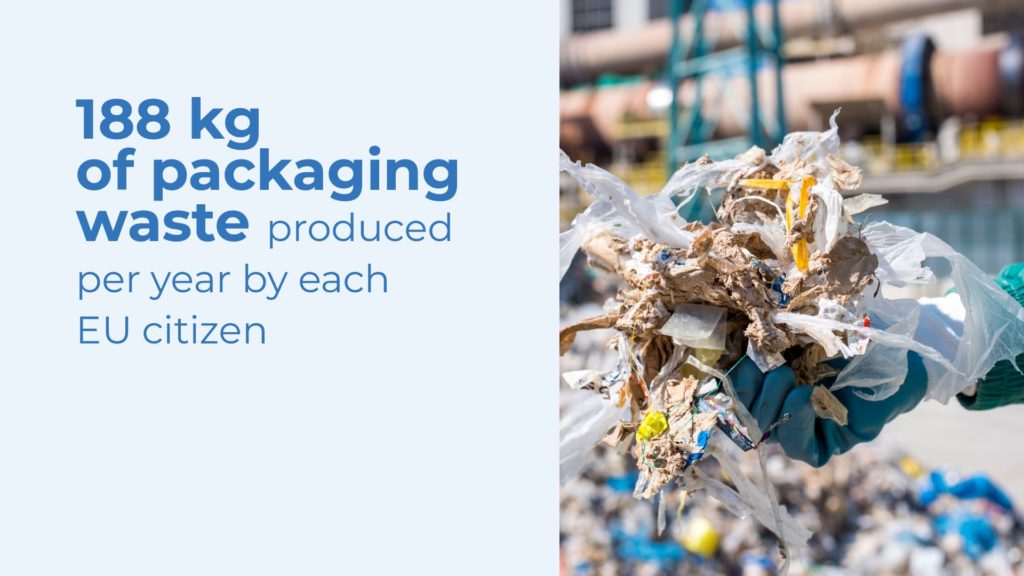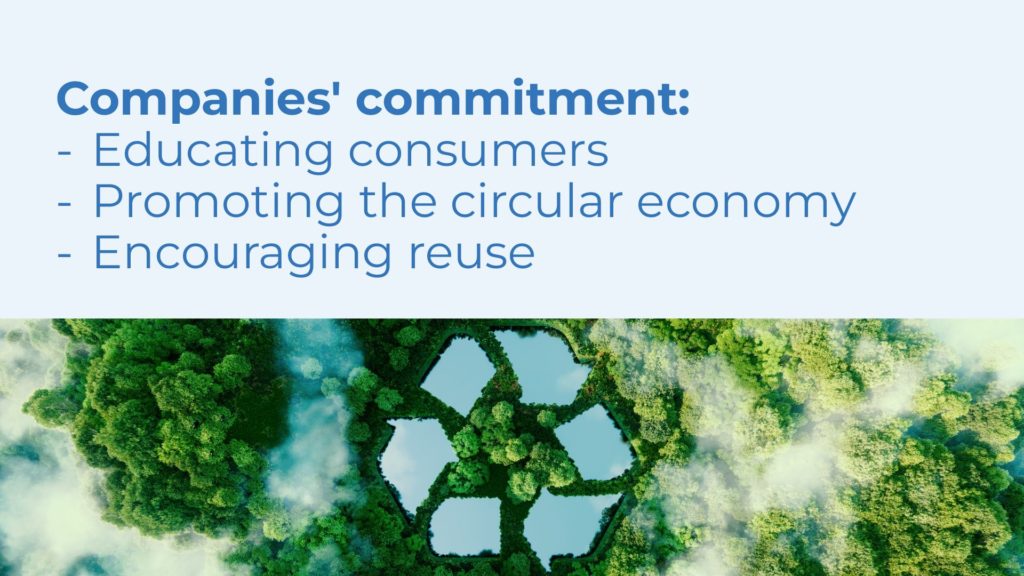According to the Food Sustainability Observatory, packaging accounts for one-third of municipal solid waste. In 2021, Eurostat data revealed that over 188 kg of packaging waste per capita were generated in Europe, with an additional 19% increase projected by 2030, exacerbating environmental impacts.
In this context, the packaging industry is emerging as a virtuous actor, adopting best practices to reduce the quantity and impact of waste generated while aligning with environmental sustainability goals and the expectations of increasingly aware consumers.

This transformation hinges on:
- Adopting sustainable and innovative materials.
- Reducing waste along the supply chain.
- Educating consumers on responsible behavior.
- Integrating circular economy solutions into business processes.
1. Packaging and Sustainable Management: A New Integrated Approach
Packaging significantly impacts the entire supply chain, from production to distribution and disposal. Companies are adopting a holistic approach that encompasses:
Eco-Design
Optimizing packaging design reduces the amount of material used while maintaining functionality. For example, mono-material packaging, which is easier to recycle, offers an innovative alternative to complex multi-layer systems.
Biodegradable and Recyclable Materials
Biopolymers derived from starch, PLA, or natural fibers are gradually replacing traditional plastics, offering a more sustainable solution.
Waste Reduction in Logistics
Efficient packaging systems minimize space usage and transportation-related emissions.
Focus on: Efficient Packaging Waste Management
According to European studies (Econstor, 2023), efficient packaging waste management through advanced recycling systems and separate collection can reduce municipal waste by up to 30%. Companies implementing Life Cycle Assessment (LCA) strategies can monitor the entire product lifecycle, identifying critical areas for environmental improvements and cost reductions.
2. The Role of the Responsible Consumer
Consumers play a crucial role in the transition toward more sustainable packaging management. Their awareness and purchasing behavior significantly influence the demand for sustainable packaging solutions.
Company Initiatives
Brands are adopting strategies to:
- Educate consumers on proper disposal and separation of packaging waste.
- Promote circular economy practices through refill systems and reusable packaging.
- Encourage reuse via awareness campaigns and partnerships with retailers.

Focus: The Importance of Informative Labels
Clear and transparent labels indicating packaging material and disposal methods improve recycling efficiency and empower consumers to act responsibly.
3. Innovative Technologies Supporting Sustainability
Technological innovations are revolutionizing the packaging industry, enabling more responsible management of municipal solid waste.
3.1 Advanced Materials Adoption
Companies are introducing innovative materials such as:
- Biodegradable bio-resins: Compostable and natural, they significantly reduce environmental impact.
- Active packaging: Systems that extend product shelf life, thereby limiting food waste.
3.2 Automated Systems and Digitalization
Digitalization, supported by IoT and smart packaging, optimizes logistics processes and reduces unnecessary material use.
- RFID sensors facilitate product tracking throughout the supply chain, enhancing traceability and minimizing waste.
- Artificial intelligence (AI) optimizes packaging design, reducing waste and improving efficiency.
Focus: 3D Printing
3D printing enables companies to test new prototypes quickly and efficiently, reducing waste generated during the design phase.
4. Circular Economy and Packaging: A Virtuous Model
Transitioning to a circular economy system offers a tangible opportunity to reduce municipal solid waste. This model is based on:
Reusable Packaging
Refill systems encourage the multiple use of containers, reducing single-use waste.
Efficient Recycling
The integration of post-consumer resins (PCR) and other materials derived from industrial waste supports circular processes.
Innovations in Reverse Logistics
Advanced systems for recovering and reintegrating packaging into production cycles are key to sustainability.
Focus on: Refill and Reusable Packaging
Refillable packaging models are gaining popularity, particularly in the food and beverage sectors. Some companies have implemented deposit-and-return systems, significantly reducing single-use waste.
5. Regulations and Future Goals
European regulations on packaging and waste management are becoming increasingly stringent. The Packaging and Packaging Waste Regulation (PPWR) sets clear objectives for:
- Reducing packaging waste.
- Promoting reuse and recycling.
- Introducing compostable and innovative materials.
Companies in the packaging industry are urged to invest in research and development to align with these regulations, building a more sustainable and resilient sector.
The Packaging Industry as a Virtuous Actor
The packaging industry is playing a pivotal role in managing municipal solid waste through technological innovations, sustainable materials, and integrated circular economy strategies. Companies are demonstrating that it is possible to combine operational efficiency with environmental responsibility, meeting both consumer demands and new regulatory objectives.
Investing in sustainable solutions is not only an ethical choice but also a strategic imperative to remain competitive in an increasingly sustainability-oriented market.Smart Packaging Hub continues to promote this virtuous dialogue among stakeholders, supporting concrete solutions to tackle the challenges of waste management and environmental sustainability.


